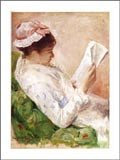 The Elegance of the Hedgehog
The Elegance of the Hedgehog by
Muriel BarberyMy rating:
5 of 5 starsElegance, from Webster's Online:A quality of refined gracefulness and good taste.
A hedgehog
is elegant. Its spiny defenses are attached securely; they do not shoot in all directions to injure at random. Each spine is a dull camouflage, not garish or multicoloured like the feathers of a tropical parrot or the scales of a tropical fish. Predators and passers-by trot past apace.
Both Madame Michel and Paloma, the narrators of this novel, are hedgehogs in a ritzy Paris apartment building. Madame Michel, the concierge, appears to be a drab, slightly slow sterotype, a disguise that she has perfected over the years since her husband died. To the residents, she is a plodding prole: a presence to be summoned and directed, nothing more. To her diary, she reveals all: her autodidact past and her desperate need to hide a sensibility that encompasses Purcell to Tom Clancy. She needs to survive, and she writes of her need in prose that ranges from literary and witty to heartbreaking.
Paloma, a brilliant 12-year-old existentialist, studies manga, writes witty and erudite diaries, and plans to commit a flamboyant suicide when she reaches 13. Part sophisticate, part little girl, she writes a good deal about irritants (including her noisy older sister whose expensive schooling seems to be quite, quite pointless) and moments of grace, which, she hopes, might form an anodyne to her bleak world-view.
Were it not for a new tenant, Kakuro Ozu, these lives might have progressed (or detonated) according to their carefully-constructed camouflage. Ozu realizes quickly that each is not as she appears. The below-the-stairs drab is teased out by a reference to
Anna Karenina, and the little girl soon finds that the concierge shares her own refined and cynical sensibility.
Since the stories of all three characters play out through the two diaries, I was happy to have listened to the audiobook. The two narrators capture the intelligence, wit, blindness, and grace behind characters who might have seemed too unappealing to follow long enough for a reader to glimpse, truly see, even though Ms. Barbery's writing is smooth and compassionate and -
elegant.
How I long to read French well enough to read Barbery in the original!)
If I decide to re-learn French when I retire, my goal shall be to return to the Hedgehog. Even if I don't, I know I'll reread this book, slowly, spine of book (or glowing reader) in hand, teasing out the true spine of each character.
View all my reviews >>
 Crossing Washington Square by Joanne Rendell
Crossing Washington Square by Joanne Rendell


